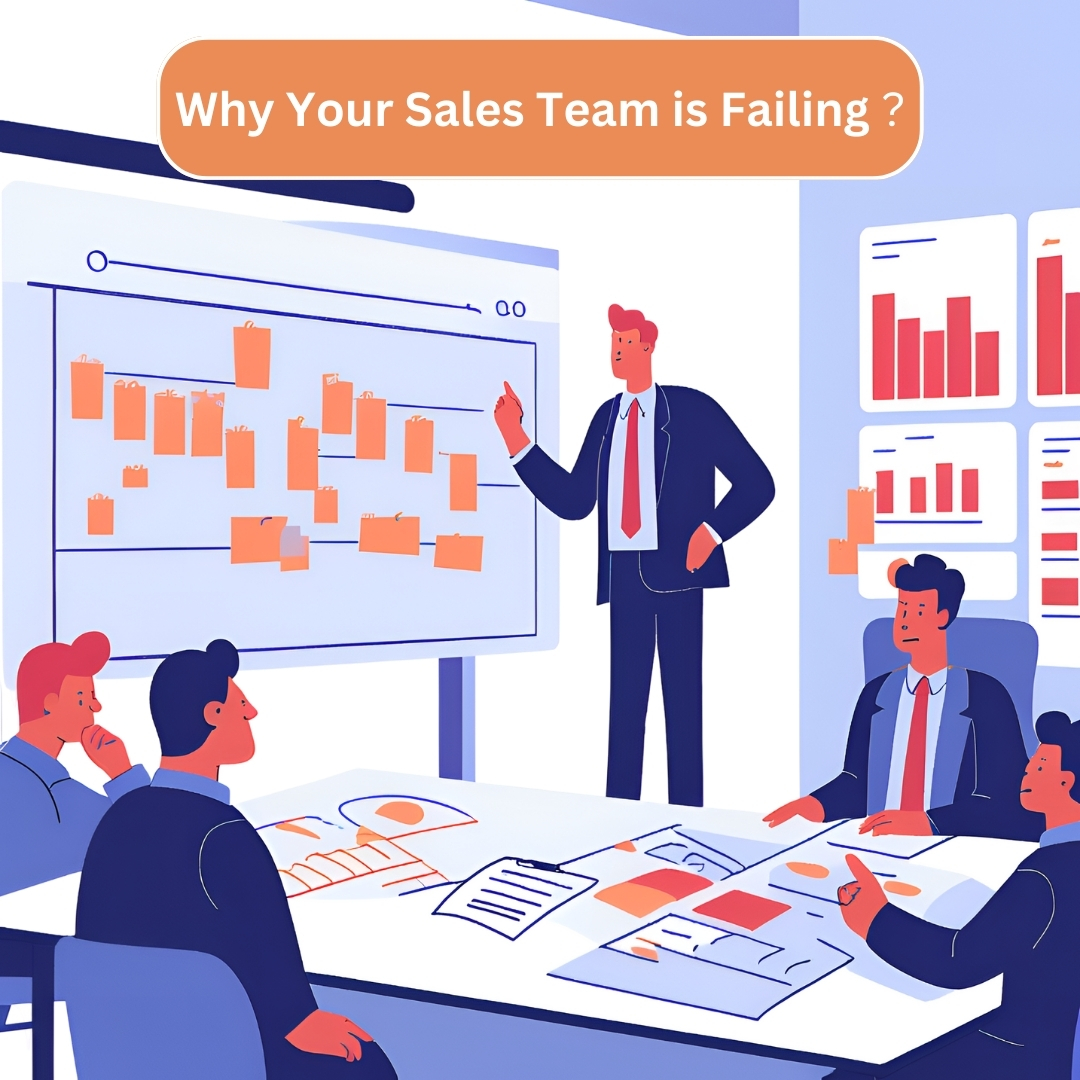In the world of business, especially for small business owners, there is often confusion between the terms marketing and sales. While both are critical to business success, they serve different purposes. Many business owners focus heavily on sales, believing that pushing products or services directly to customers is the quickest way to increase revenue. However, those who fail to recognize the importance of marketing in driving long-term growth often find themselves struggling to keep their business afloat.
This blog post will explain why marketing is the foundation of sustainable business growth, how it differs from sales, and why small business owners need to prioritize it in their business strategy.
Understanding Marketing vs. Sales
Sales is the process of directly interacting with a customer to persuade them to purchase a product or service. It is transactional and immediate, often focused on short-term goals. On the other hand, marketing is a broader and more strategic function that involves understanding customer needs, creating awareness, building relationships, and positioning a brand in the marketplace. Marketing lays the groundwork for sales by attracting potential customers and nurturing their interest over time.
Marketing for business owners is not just about creating ads or running promotions. It’s about identifying the right audience, crafting the right message, and using the right channels to communicate that message effectively. In contrast, sales come into play once the customer is engaged and ready to make a purchase decision.
Why Marketing is More Important for Long-Term Growth
For small business owners, focusing solely on sales might give you immediate results, but it’s not sustainable. Without a strong marketing strategy, sales will eventually dry up. Here’s why marketing is crucial for long-term growth:
- Attracts the Right Customers
Marketing helps small businesses attract the right customers by defining their target market. When a business understands who their ideal customer is, it can craft messages that resonate with their specific needs and preferences. This ensures that marketing efforts are more focused and effective.
For instance, a small business manufacturing eco-friendly products may want to attract environmentally conscious customers. Through consultation marketing and a well-defined small business marketing strategy, the business can create content that speaks to this audience’s values, making it easier to attract and retain loyal customers.
- Builds Brand Awareness
One of the main purposes of marketing is to build brand awareness. Without marketing, potential customers won’t know that your business exists. In today’s competitive landscape, being visible and recognizable is essential for business survival. By investing in marketing, small business owners can increase their brand’s visibility, ensuring that they stay top of mind for potential customers.
For example, digital marketing consultancy can help small businesses develop a strong online presence, ensuring that they appear in search results when customers look for products or services similar to theirs.
- Creates a Long-Term Relationship with Customers
Sales may get customers through the door, but marketing is what keeps them coming back. By consistently delivering valuable content, addressing customer pain points, and maintaining an active presence in your target market, businesses can build long-term relationships with their customers.
Unlike sales, which are focused on closing deals, marketing for business owners should be about creating value for customers over time. This can be done through email marketing, social media engagement, or content marketing. When customers feel connected to a brand, they are more likely to become repeat buyers and even advocates for the business.
- Positions the Business as an Authority
Another benefit of marketing is that it positions a business as an authority in its industry. When customers perceive a brand as knowledgeable and trustworthy, they are more likely to choose that business over its competitors.
For example, offering consultation marketing services or sharing expert advice through blog posts and guides can help a business demonstrate its expertise. By consistently providing valuable insights, small business owners can build trust and credibility with their audience, making it easier to convert leads into customers.
- Reduces the Need for Hard Selling
Effective marketing reduces the need for aggressive sales tactics. When marketing is done right, potential customers already know what the business offers and how it can solve their problems. As a result, they are more likely to be receptive to sales efforts.
This is where digital marketing consultancy becomes invaluable. By implementing a strategic marketing plan, small businesses can create a steady stream of inbound leads—people who are already interested in their products or services. This makes the sales process smoother and more natural, as customers are already primed for the conversation.
- Ensures Consistent Growth
Sales can fluctuate depending on seasonality, economic conditions, and other factors. However, a well-executed marketing strategy can provide consistent growth by creating a pipeline of potential customers. Even during slow periods, effective marketing keeps the business visible and engaged with its target audience.
By focusing on long-term growth through marketing, small businesses can avoid the feast-or-famine cycle that often comes with a sales-first approach. This ensures that the business remains profitable and sustainable over time.
The Role of Digital Marketing in Small Business Growth
In today’s digital age, traditional marketing methods are no longer enough. Small businesses need to embrace digital marketing services to stay competitive and reach a wider audience. Digital marketing offers several advantages over traditional methods:
– Cost-effectiveness: Digital marketing is often more affordable than traditional marketing, making it ideal for small businesses with limited budgets.
– Targeted Reach: With digital marketing, businesses can target specific demographics, interests, and behaviors, ensuring that their message reaches the right people.
– Measurable Results: Digital marketing allows businesses to track their efforts in real-time, making it easier to measure the success of campaigns and make adjustments as needed.
Whether it’s through search engine optimization (SEO), pay-per-click (PPC) advertising, or social media marketing, digital marketing consultancy can help small businesses develop a strategy that aligns with their goals and budget.
The Cost of Not Focusing on Marketing
One of the biggest mistakes small business owners make is neglecting marketing. Without marketing, businesses struggle to attract new customers, leading to stagnation or decline. Worse, when businesses don’t market themselves effectively, customers often perceive their products or services as less valuable, leading to price negotiations and lower profit margins.
Marketing sets the foundation for how a business is perceived. A strong marketing message communicates the value of a product or service, reducing the likelihood of customers bargaining for lower prices. Without a clear marketing strategy, businesses risk being seen as just another option in a crowded market, forcing them to compete on price rather than value.
Why Sales Alone is Not Enough
While sales are critical to business success, they cannot drive growth on their own. Sales are reactive—responding to customer inquiries or objections in the moment. Marketing, on the other hand, is proactive—it creates demand, generates leads, and sets the stage for sales to succeed.
In the battle of marketing vs sales, both functions are essential, but marketing is what drives long-term growth. It creates the opportunities that sales teams need to close deals and ensures that the business stays competitive in the long run.
Small Business Marketing Strategy: A Roadmap for Success
Developing a solid small business marketing strategy is the key to long-term growth. For small business owners, the first step is to assess their current marketing efforts. Are they effectively reaching their target audience? Are they using the right channels? Do they have a consistent brand message?
A comprehensive marketing strategy should include:
Market Research: Understanding the target audience, competitors, and industry trends.
Brand Positioning: Defining what sets the business apart from competitors and how it will communicate that value.
Content Strategy: Developing a plan for creating and distributing valuable content that attracts and engages customers.
Digital Marketing: Implementing digital marketing tactics such as SEO, social media marketing, and email marketing to reach a wider audience.
By working with a digital marketing consultancy or investing in consultation marketing, small business owners can create a customized plan that aligns with their business goals and drives long-term growth.
Next Steps: Free Marketing Resources to Help You Get Started
At 10X Coaching, we understand that marketing can be overwhelming, especially for small business owners. That’s why we’ve created a range of free resources to help you get started on the right path:
– How-to Guides: Learn the basics of digital marketing, content creation, and SEO.
– Checklists: Ensure your marketing efforts are aligned with your business goals.
– Videos: Watch our expert-led tutorials on marketing best practices.
Conclusion: Marketing is the Key to Long-Term Success
For small business owners looking to grow their business, marketing is not an option—it’s a necessity. By investing in a well-rounded small business marketing strategy, businesses can attract the right customers, build long-term relationships, and position themselves for sustainable success. While sales are important, it is marketing that sets the foundation for growth.
If you’re ready to take your business to the next level, visit 10XCoachIndia.com and sign up for our free marketing courses. With guidance from Suresh Kumar, India’s only Grant Cardone Certified Business Coach, you can master marketing and achieve long-term growth.









